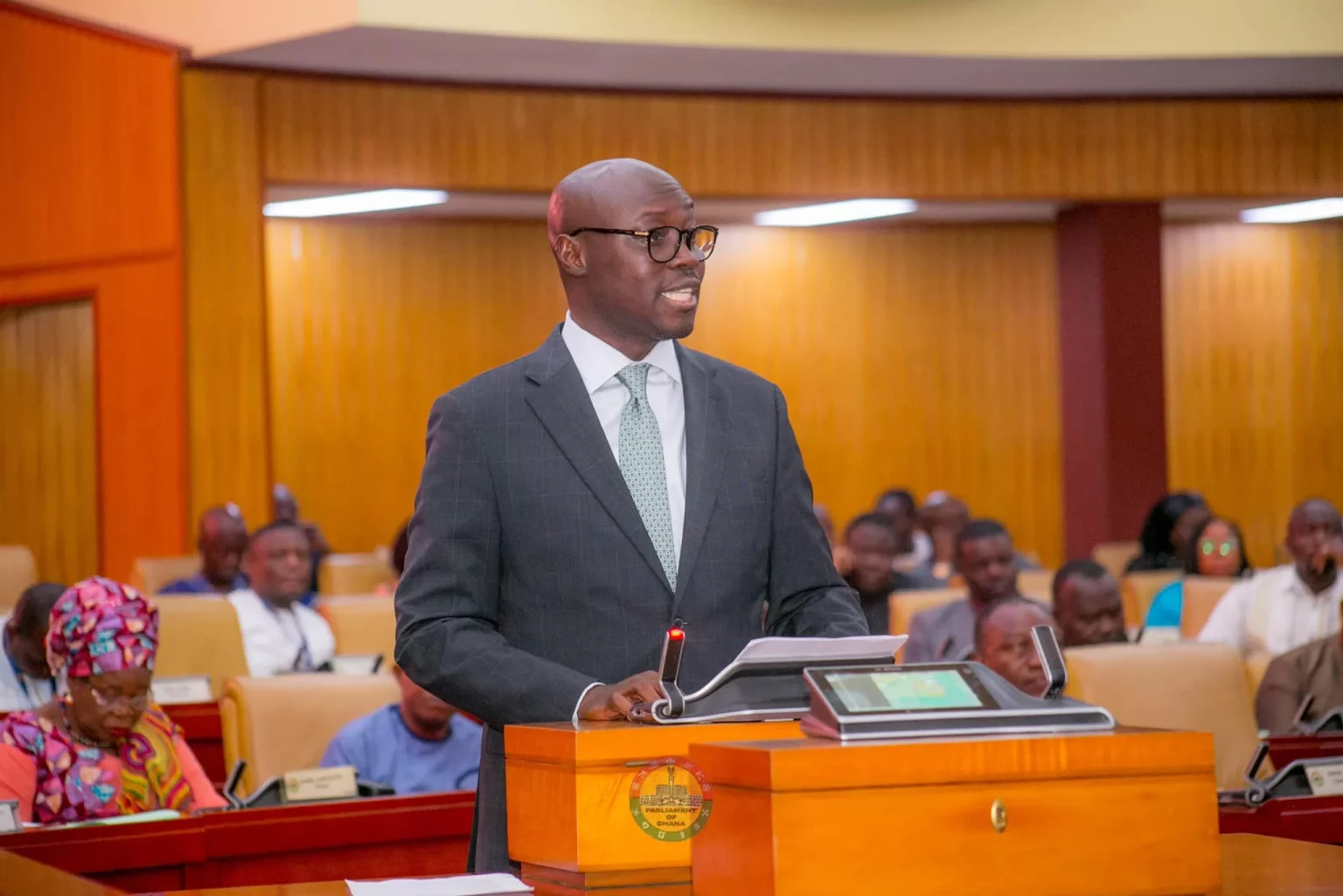In a recent development within Ghana’s political landscape, Minority Leader Dr. Cassiel Ato Forson has issued a strong call for accountability from the ruling New Patriotic Party (NPP) following an unexpected adjournment of Parliament. On November 7, Speaker Alban Bagbin adjourned sessions indefinitely due to the absence of NPP members, a situation that disrupted scheduled parliamentary proceedings and raised questions about the party’s commitment to governance. Dr. Forson, reflecting on this significant lapse, urged Ghanaians to consider voting the NPP out in the upcoming elections set for December 7. His statements highlight a growing frustration with the current government’s inability to engage constructively in parliamentary duties and to address pressing national issues.
The adjournment was not merely procedural; it pointed to deeper issues within the NPP, which Dr. Forson argues is indicative of a broader disarray affecting the party’s operational effectiveness. He has articulated that the absence of NPP members is not only a procedural hiccup but also a significant financial concern, as parliamentary inaction leads to delays in discussions that are critical for the nation’s progress. Dr. Forson emphasized that this situation exemplifies “willfully causing financial loss to the state,” underscoring the gravity of the NPP’s neglect of their responsibilities. To him, the lack of attendance reflects a party disconnected from its obligations to the constituents it represents.
Critically addressing the media, Dr. Forson articulated his discontent, labeling the actions of the NPP as troubling and a blatant disregard for parliamentary responsibilities. His strong rhetoric suggests a belief that the NPP is mismanaging its role, an assertion that could resonate with voters frustrated by the perceived incompetence of their elected officials. In his view, the decision to adjourn Parliament without sufficient justification is an abuse of the legislative process, calling for a reassessment of the NPP’s effectiveness as a governing body. The implications of such a statement could mobilize public sentiment against the party and increase calls for electoral change.
Moreover, Dr. Forson’s remarks underscore a deeper disillusionment with the current government, which he claims has become increasingly stagnant. He accused the NPP of lacking viable solutions to pressing national challenges, implying that the party is reliant on superficial campaigning tactics rather than substantive policy proposals. By contrasting the NPP’s seemingly ineffectual approach to governance against the backdrop of the upcoming elections, he is effectively rallying Ghanaian citizens to scrutinize the party’s track record of performance in office. This discourse serves to galvanize opposition support ahead of a pivotal electoral decision.
Dr. Forson’s critique also has an emotional undertone, reflecting a growing impatience among the populace. His assertion that the NPP’s preoccupation with campaign activities over legislative responsibilities is misleading resonated with concerns that may pervade public opinion. He admonished those who might view the National Democratic Congress (NDC) as merely a distracting force, framing their forthcoming electoral participation as necessary for rectifying perceived governmental inadequacies. His comments encourage voters to view the elections as an opportunity for accountability rather than as a mere routine process.
As Ghanaians prepare for the impending elections, Dr. Forson’s appeal serves not just as a political statement but as a clarion call for civic engagement. He stresses the need for accountability, urging citizens to reflect on the performance of the NPP and consider the implications of their parliamentary absence when casting their votes. The interplay between these political dynamics and the larger democratic landscape in Ghana sets the stage for a contentious electoral battle, as parties position themselves around issues of governance, accountability, and effectiveness in meeting the needs of the populace. Ultimately, this moment represents not only a turning point for the NPP but also a critical juncture for Ghanaian democracy, where the electorate may decisively influence the future direction of the country.














